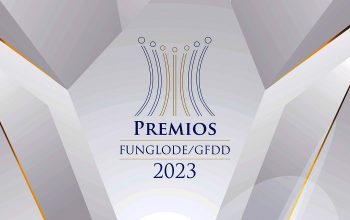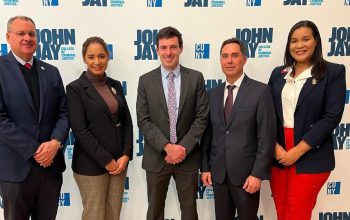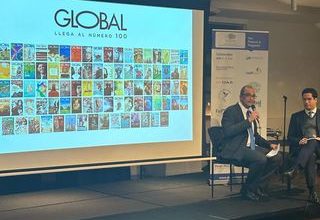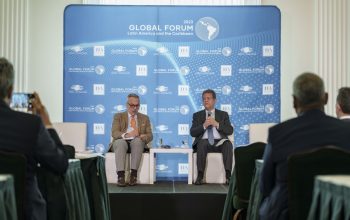news
GFDD/Funglode Attend 2015 International Conference on Sustainable Development at Columbia University with Close to 1000 other Participants
September 25, 2015
The president of GFDD/Funglode and former president of the Dominican Republic, Dr. Leonel Fernández, participated in the Third International Conference on Sustainable Development, an activity during which he shared the stage with other members of the Leadership Council of the United Nations Sustainable Development Solutions Network (SDSN), an organization of which he is a member. The conference took place from Wednesday September 23 to Thursday September 24. Preceding the UN
Summit to Adopt the Post 2015 Development Agenda, the Conference generated a lot of interest in the development field with over 900 confirmed registrants. The event also attracted a wide range of high level speakers from the UN (Irina Bokova, Director General of UNESCO), civil society (Johan Rockström, Director of the Stockholm Resilience Centre) and the private sector (Hans Vestberg, CEO of the Ericsson Group).
Opening the conference with his remarks, Professor Jeffrey
Sachs commented on the fact that “NYC has the highest concentration of wealth in the world. Yet we don’t redistribute that wealth to help those that need it the most.” He went on to note that “Sustainable development means harnessing economic development, social development and environmental sustainability at the same time.”
Fernández participated alongside a group of experts from academic circles, private industry, civil
society, and the public sector, with whom he discussed the implementation of the new goals that the UN has set out in terms of sustainable development. At the meeting, former President Fernández and the other members of the Leadership Council discussed the reforms required to move on to the implementation of the 2015 agenda. During their respective contributions, the leaders also put emphasis on the importance of the use of information and education technologies as ways to expand
sustainable development and to create a more inclusive and fair society.
GFDD/Funglode Attend 2015 International Conference on Sustainable Development at Columbia University with Close to 1000 other
Participants
UN officials were very present at the event and keen to emphasize the upcoming adoption of the new Post 2015 Development Agenda and its Sustainable Development Goals (SDGs). Irina
Bokova, Director-General UNESCO, stressed that “equality in access to education for all should be one of the prerequisites of achieving the SDGs.” Jan Eliasson, Deputy Secretary-General, United Nations commented that “This agenda is about transformative change by everyone everywhere, only by working together can we achieve the goals of sustainable development. In today’s world there is no more important word than the word
“together.“
The following two days were peppered with a variety of interactive debates and panel discussions, providing participants with opportunities to engage with stakeholders from both the public and the private sector on issues ranging from access to energy, to green cities and planetary boundaries.
Continuing to mark an upbeat note, Johan Rockström, Director of the Stockholm Resilience Centre, stressed that “We are
in a new logic. For the first time we have a [development] agenda to achieve prosperity and have a sustainable planet.”
The private sector also offered some reassuring comments that it supports the transition to a more sustainable world. Indeed, during a panel on the role of the financial sector in the green economy, Zoe Knight, Managing Director and Global Head of HSBC Climate Change Centre of Excellence, noted that “despite
uncertainty about what needs to be done in the financial community, there is a good effort underway to promote sustainable development. Within HSBC, operational sustainability is embedded in how we deal with our client base and the way they manage their assets.”
During a session entitled Empowering Youth for Sustainable Development, Siamak Sam Loni, the Global Coordinator for SDSN Youth, reflected on the value of engaging the future generation
to achieve sustainable development. Loni took to the podium to underscore the importance of “getting everyone on board” in order to ensure “the SDGs are implemented”. He explained that “this is where young people come in. They have to go to communities and push them to action. SDSN Youth looks to create a core hub for youth to communicate. Young people are fundamental to this agenda so intergenerational communication is the key to SDG
success”.
Marking the closing ceremony of the conference on Thursday afternoon, H.E. Paul Kagame, President of the Republic of Rwanda took to the podium to stress to the audience that the “The SDGs are the next chapter in global development collaboration and an opportunity to move away from business as usual”. He turned to the audience and reminded participants that “it is time to ask what we can improve and how we can make
development sustainable”.
About the conference:
With a conference theme entitled Implementing the SDGs: Getting Started, the aim of the conference was to identify and share practical, evidence-based solutions that can support the Sustainable Development Goals (SDGs), which will be agreed upon at the United Nations immediately following the conference. The ICSD provides a unique opportunity to bring together
stakeholders from government, academia, the United Nations, international agencies, NGOs, and grassroots organizers to share practical solutions towards the achievement of more sustainable and inclusive societies.
Related link:
http://ic-sd.org/






